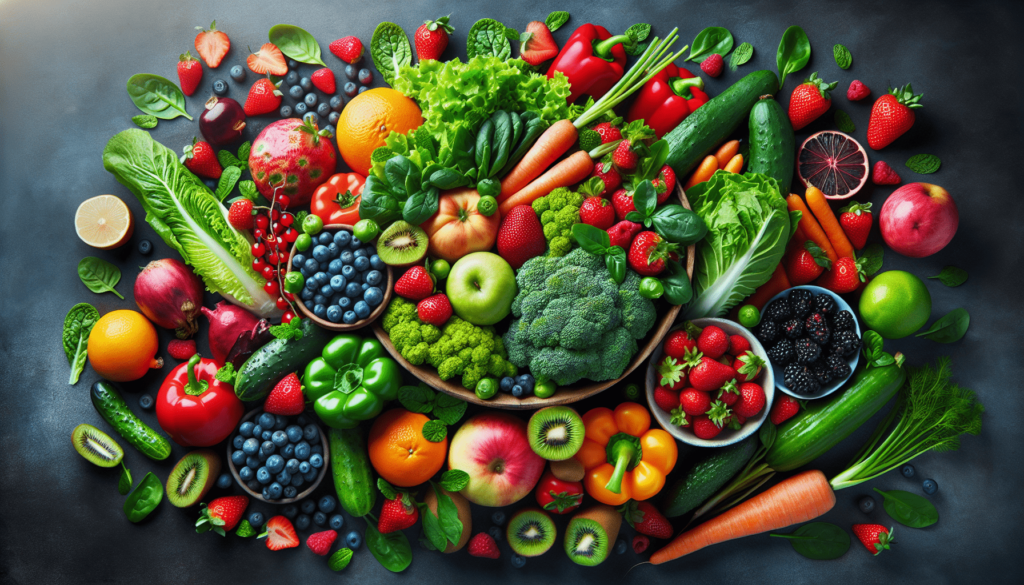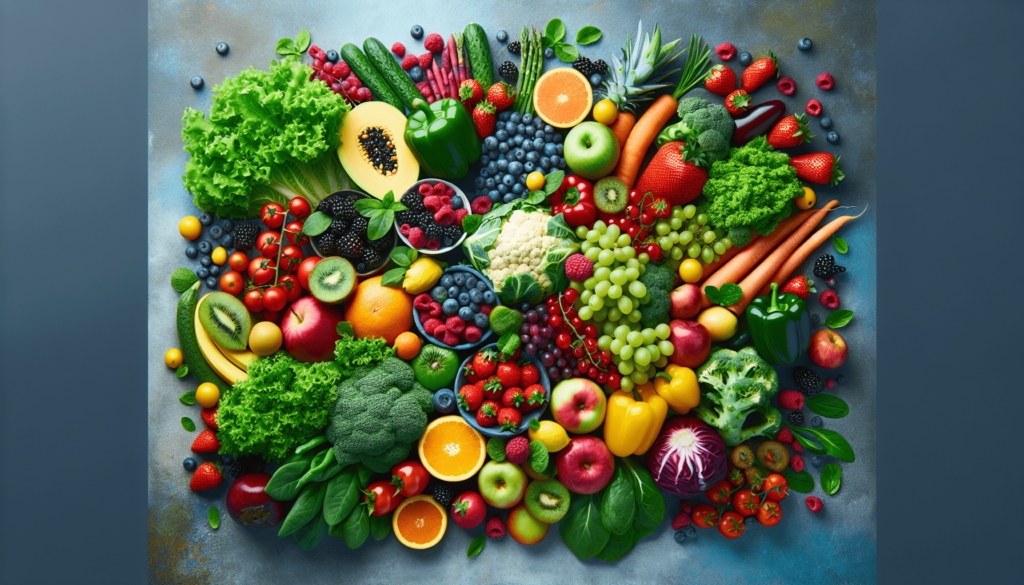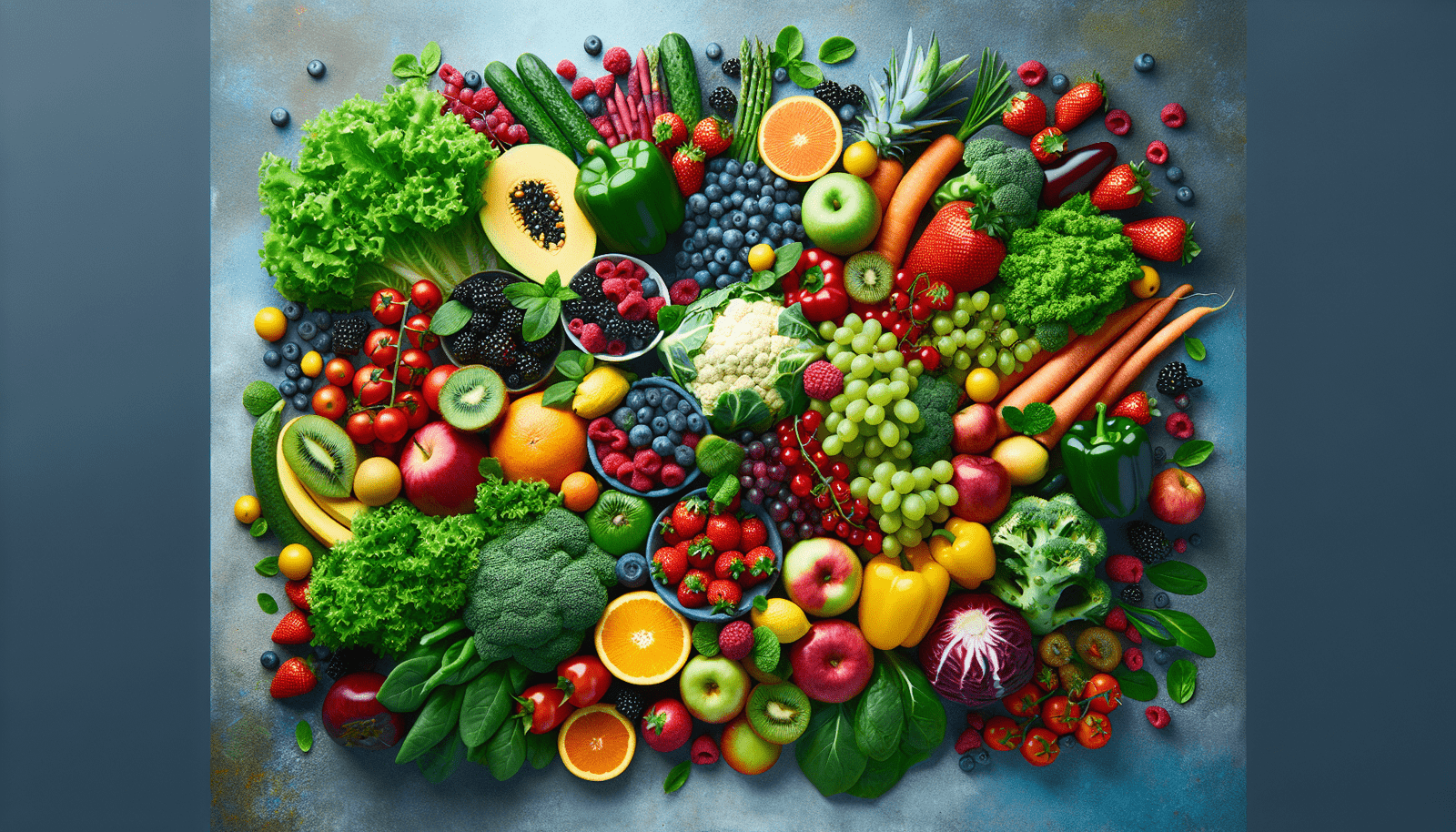The Basics of a Vegetarian Diet
If you’re looking to shed some extra pounds, you may have heard about the benefits of a vegetarian diet. But what does it really involve? In simple terms, a vegetarian diet excludes meat, poultry, and fish. Instead, it focuses on consuming plant-based foods such as fruits, vegetables, grains, legumes, nuts, and seeds. Many people choose a vegetarian diet for ethical, environmental, or health reasons, but can it actually help you lose weight?
Plant-Based Proteins
When adopting a vegetarian diet for weight loss, it’s essential to ensure you’re getting adequate protein. While meat is a high-protein option, there are plenty of plant-based protein sources available. These include tofu, tempeh, lentils, chickpeas, quinoa, and edamame. Incorporating a variety of these protein-rich foods into your meals can help keep you feeling full and satisfied while promoting weight loss.
Fiber-Rich Foods
One of the key benefits of a vegetarian diet for weight loss is its high fiber content. Fiber is crucial for digestive health and can help you feel fuller for longer periods. Foods like fruits, vegetables, whole grains, and legumes are excellent sources of fiber. By including these in your diet, you can manage your hunger levels and potentially reduce calorie intake, aiding in weight loss efforts.
Potential Benefits of a Vegetarian Diet for Weight Loss
Beyond just the basics, there are several potential benefits to adopting a vegetarian diet when aiming to lose weight. Let’s explore some of the advantages that this approach can offer.
Lower Caloric Intake
Many plant-based foods are naturally lower in calories compared to their animal-based counterparts. By focusing on fruits, vegetables, whole grains, and legumes, you can create meals that are filling and satisfying without excess calories. This can lead to a lower overall caloric intake, which is essential for weight loss.
Improved Digestion
The high fiber content of a vegetarian diet can promote healthy digestion. Fiber helps to move food through the digestive system, prevent constipation, and support gut health. A well-functioning digestive system can aid in weight loss by optimizing nutrient absorption and waste elimination.
Enhanced Nutrient Intake
In addition to fiber, a vegetarian diet can provide you with an array of essential nutrients. Fruits and vegetables are rich in vitamins, minerals, and antioxidants that support overall health and well-being. By nourishing your body with these nutrient-dense foods, you can improve your energy levels, immunity, and metabolism, all of which are beneficial for weight loss.

Potential Challenges of Following a Vegetarian Diet for Weight Loss
While there are many advantages to a vegetarian diet for weight loss, there are also some potential challenges to consider. It’s essential to be aware of these obstacles and find ways to overcome them to achieve success on your weight loss journey.
Adequate Protein Intake
One common concern with vegetarian diets is ensuring an adequate intake of protein. While plant-based proteins are plentiful, some individuals may struggle to meet their protein needs without animal products. To address this challenge, focus on incorporating a variety of protein sources in your meals and consider supplementing with options like protein powder or shakes if necessary.
Nutrient Deficiencies
Another challenge of a vegetarian diet is the risk of certain nutrient deficiencies. Some essential nutrients, such as vitamin B12, iron, and omega-3 fatty acids, are primarily found in animal products. To prevent deficiencies, be sure to include fortified foods, supplements, or specific plant-based sources of these nutrients in your diet. Consulting with a healthcare provider or dietitian can help you create a well-rounded eating plan that meets your individual needs.
Processed Vegetarian Options
Not all vegetarian foods are created equal when it comes to weight loss. Some processed vegetarian options, such as veggie burgers, faux meats, and packaged snacks, can be high in calories, sodium, and unhealthy fats. While these foods can be convenient, it’s essential to prioritize whole, minimally processed plant-based foods for optimal weight loss results.
Practical Tips for Implementing a Vegetarian Diet for Weight Loss
If you’re ready to give a vegetarian diet a try for weight loss, there are several practical tips to help you get started and stay on track. By following these suggestions, you can make the transition to a plant-based eating plan smoother and more successful.
Plan Balanced Meals
One of the keys to success with a vegetarian diet for weight loss is planning balanced meals that include a variety of nutrients. Aim to have a source of protein, fiber, healthy fats, and carbohydrates in each meal to promote satiety and prevent nutrient deficiencies. Consider using a meal planning app or recipe guide to help you create well-rounded and satisfying dishes.
Experiment with New Foods
Embracing a vegetarian diet can be an opportunity to explore new foods and flavors. Take this chance to try different fruits, vegetables, grains, and legumes that you may not have eaten before. Experiment with cooking techniques, seasonings, and recipes to keep your meals exciting and enjoyable. The more variety you incorporate into your diet, the more likely you are to stick with it long-term.
Stay Hydrated
Proper hydration is essential for overall health and weight loss. Drinking an adequate amount of water throughout the day can help regulate appetite, support metabolism, and prevent dehydration. Be mindful of your fluid intake and aim to consume at least eight glasses of water daily. If you struggle to drink plain water, infuse it with fresh fruits, herbs, or vegetables for added flavor.

Sample Vegetarian Meal Plan for Weight Loss
To give you a better idea of what a vegetarian diet for weight loss might look like in practice, here’s a sample meal plan to get you started. This plan includes a variety of nutrient-rich, plant-based foods to help support your weight loss goals.
Day 1
- Breakfast: Greek yogurt with mixed berries and almonds
- Snack: Carrot sticks with hummus
- Lunch: Quinoa and black bean salad with avocado and cherry tomatoes
- Snack: Apple slices with peanut butter
- Dinner: Lentil soup with whole grain bread and a side salad
Day 2
- Breakfast: Overnight oats with chia seeds, almond milk, and sliced banana
- Snack: Edamame pods
- Lunch: Veggie stir-fry with tofu, bell peppers, broccoli, and brown rice
- Snack: Trail mix with nuts and dried fruit
- Dinner: Zucchini noodles with marinara sauce and roasted chickpeas
Tracking Progress and Adjusting Your Vegetarian Diet
As you embark on a vegetarian diet for weight loss, it’s essential to track your progress and make adjustments as needed. Regularly monitoring your food intake, activity levels, and weight can help you stay accountable and identify areas for improvement. Consider using a food diary, weight loss app, or fitness tracker to log your meals, workouts, and measurements. This data can provide valuable insights into your habits and help you fine-tune your diet for optimal results.
Reflect on Your Goals
Throughout your weight loss journey, take time to reflect on your goals and motivations for adopting a vegetarian diet. Consider what you hope to achieve, why it’s important to you, and how you feel about your progress so far. Visualize your success, celebrate your achievements, and learn from any setbacks you encounter. By staying mindful and focused on your goals, you can stay motivated and committed to your health and wellness.
Seek Support and Guidance
If you find yourself struggling with your vegetarian diet or weight loss efforts, don’t hesitate to seek support and guidance from others. Reach out to friends, family members, or online communities who can offer encouragement, advice, and accountability. Consider joining a weight loss group, working with a dietitian, or consulting a healthcare provider for personalized recommendations and support. Remember that you’re not alone on this journey, and there are resources available to help you succeed.
Adapt to Your Body’s Needs
As you progress with your vegetarian diet for weight loss, pay attention to how your body responds to different foods and eating patterns. Notice how certain foods make you feel, both physically and emotionally, and adjust your diet accordingly. Be open to trying new foods, tweaking your meal plan, and listening to your hunger and fullness cues. By staying attuned to your body’s needs, you can create a sustainable and effective approach to weight loss that works for you.
Final Thoughts on Vegetarian Diets for Weight Loss
So, do vegetarian diets work for weight loss? The answer is… it depends. While a vegetarian diet can offer many benefits for those looking to shed pounds, it’s not a one-size-fits-all solution. Success with weight loss ultimately comes down to creating a balanced, nutritious eating plan that supports your goals, preferences, and lifestyle. By incorporating plant-based foods, paying attention to your protein and nutrient intake, and following practical tips for success, you can harness the power of a vegetarian diet to achieve lasting weight loss results. Remember that consistency, patience, and self-care are key components of any successful weight loss journey. Trust in yourself, stay committed to your goals, and enjoy the process of nourishing your body with wholesome, delicious foods. Whether you’re new to vegetarian eating or a seasoned plant-based pro, embracing a vegetarian diet for weight loss can be a rewarding and transformative experience. Here’s to your health, happiness, and success on your journey to a healthier you.

